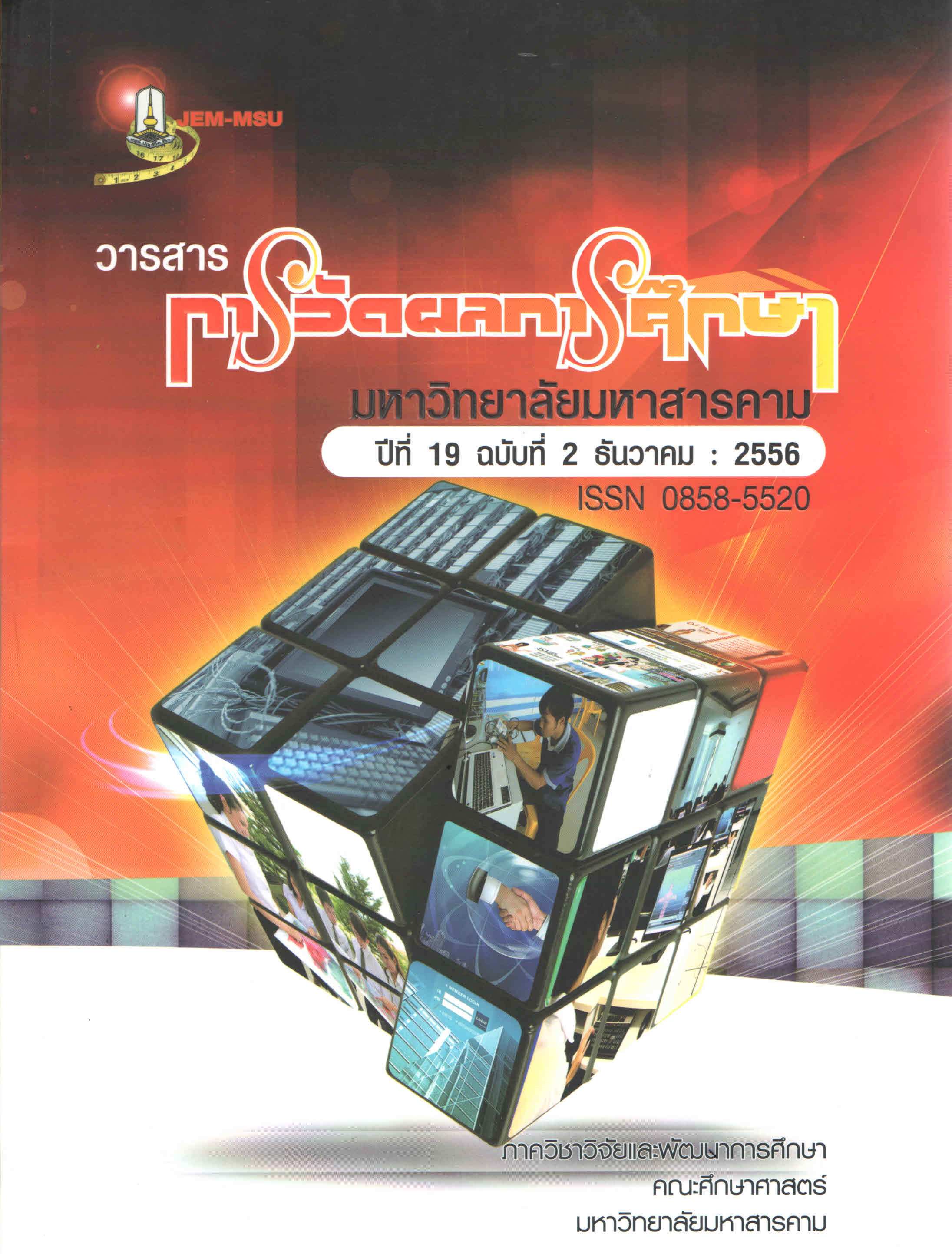Development Social Skill of early Childhood Children in Ban Tum Primary school (Npc. 15 Krp. Klangubpatam) under the Office of Sri Sa Ket Primary Education Service Area 4 through Group Activities to enrich the experience.
Main Article Content
Abstract
Social skills are the basic skills of the individual. Which should have been cultivated since
their children. Everyone who is a part of society to live in a society can be happy in this research
aims to develop the social skills of preschool students. Ban Tum Primary school (Npc. 15 Krp.
Klangubpatam) under the Office of Sri Sa Ket Primary Education Service Area 4 through Group.
Activities using a sample used in this study. Kindergarten students are studying in the first semester
of the first academic year of the School in 2555 bud. Ban Tum Primary school (Npc. 15 Krp.
Klangubpatam) under the Office of Sri Sa Ket Primary Education Service Area 4 through Group
game with 20 men as different children (aged 4-6 years) were selected by random cluster (Cluster
Random Sampling) by using the classroom as the unit of randomization. Tools used in this study
was evaluation of social skills with confidence. 0.81 was used in this study were percentage, mean
and standard deviation. The statistics used in hypothesis testing using statistical software SPSS for
Windows by way of TheWilcoxon Signed Ranks test.
The results were as follows.
1. A study of the ratings of social skills were developed using experience from
previous activities. Using experience. Skills and responsibilities. The overall average is between
1.33 to 3.00 as support skills. The overall average is between 1.00 to 2.67 with skills to share with
others. The overall average is between 1.00 to 3.00 skills to work with others. Total scores ranged
from 1.33 to 3.00 and average skills and responsibilities. Playing with the others. The known length.
The collaborate with others is equal to 2.18, 2.15, 2.05 and 2.05, respectively, from the use of
healthcare experience. Skills and responsibilities. The overall averag
support skills. The overall average is between 4.00 to 5.67 with skills to share with others. The
overall average is between 4.00 to 5.67 skills to work with others. Total scores ranged from 4.00 to
5.67 and average playing skills with other people. The collaborate with others. Responsibility. The
known length were 5.03, 4.97, 4.88 and 4.68, respectively, indicating that Students have the
students develop the skills to experience higher social event experience.
2. Assessment of social skills of preschool students with social skills pretest the
greatest responsibility. 36.33 percent in the least, followed the play with others. 35.83 percent in
the least. As part of the rescue and working with others to a minimum. 34.17 percent in the least.
And the overall level of social skills at a low level. 35.13 percent after the experiment with the
social skills to play with other people as possible. Accounted for 83.83 percent, the highest level is
the interaction with others. 82.33 percent minimum. The known length. 78.00 percent at the high
level. And the overall level of social skills are at the highest level. Accounted for 81.37 percent of
the increase in all areas. By working together with other changes to the most. At a moderate level.
48.67 percent, followed by the internet to share with others. At a moderate level. 48.00 percent,
which is the least known of the aid. Increased at a moderate level. 43.83 percent, and the overall
level of social skills were moderate. 46.38 percent, indicating that Students to experience the
development of social skills.
3. A comparison of social skills by preschool students. Shows. After learning activities
for early childhood students experience a higher overall social skills. Statistically significant at the
.05 level, considering it was also found that the interaction with others. The average pre-and postevent experience. The average of the difference scores. In the first level (Z = 3.98), followed by
the known length (Z = 3.97) while the other is playing with the sequence (Z = 3.86).
Article Details
The content and information contained in the published article in the Journal of Educational Measurement Mahasarakham University represent the opinions and responsibilities of the authors directly. The editorial board of the journal is not necessarily in agreement with or responsible for any of the content.
The articles, data, content, images, etc. that have been published in the Journal of Educational Measurement Mahasarakham University are copyrighted by the journal. If any individual or organization wishes to reproduce or perform any actions involving the entirety or any part of the content, they must obtain written permission from the Journal of Educational Measurement Mahasarakham University.


